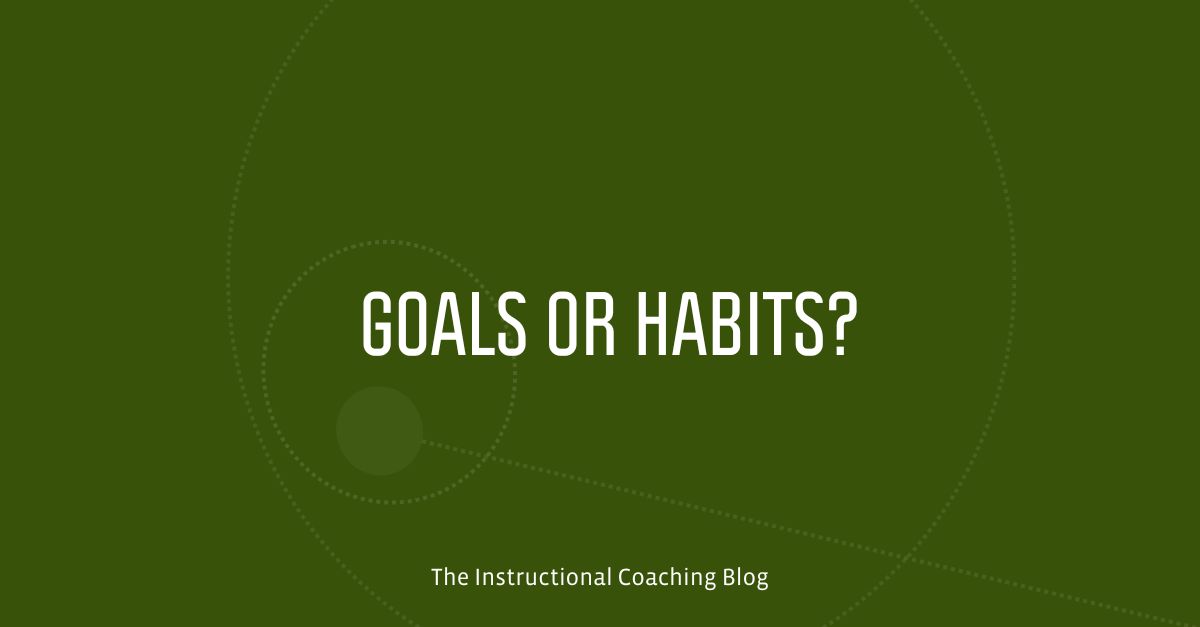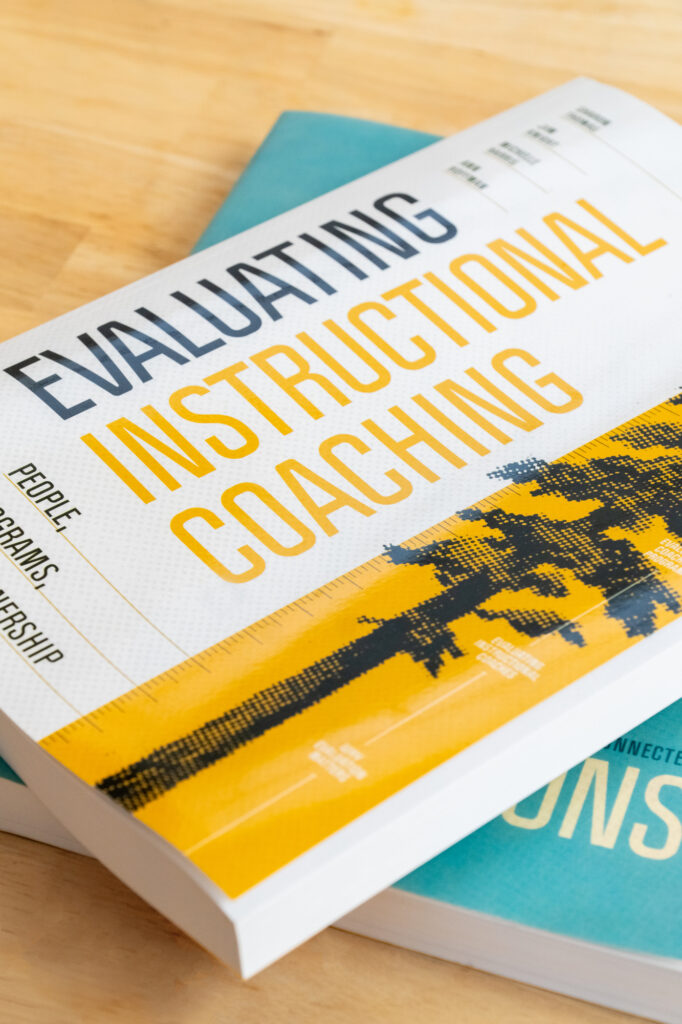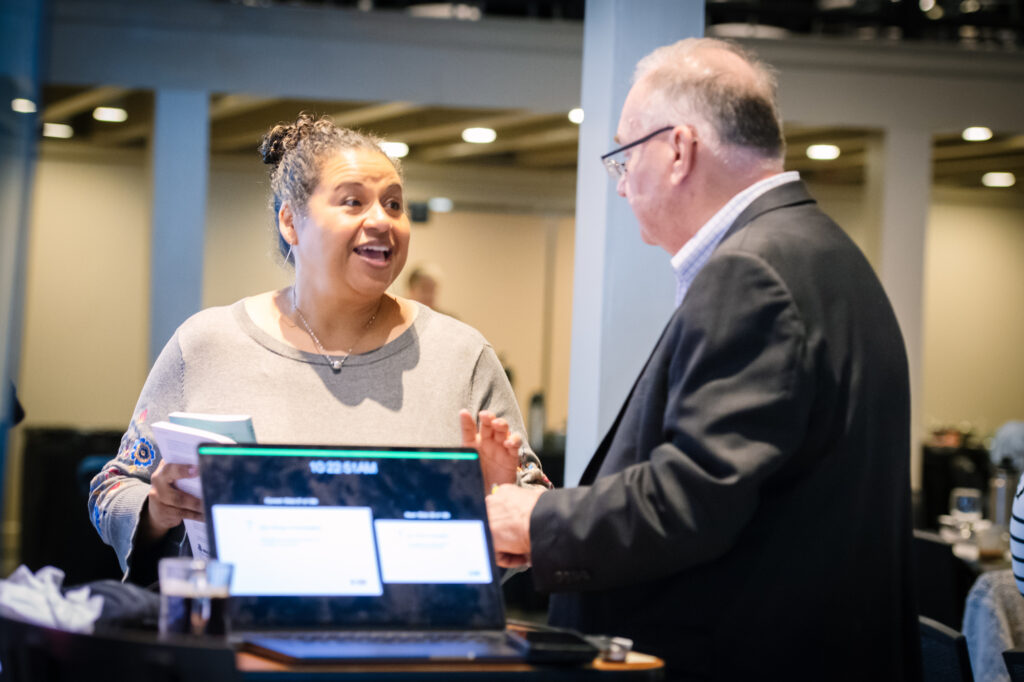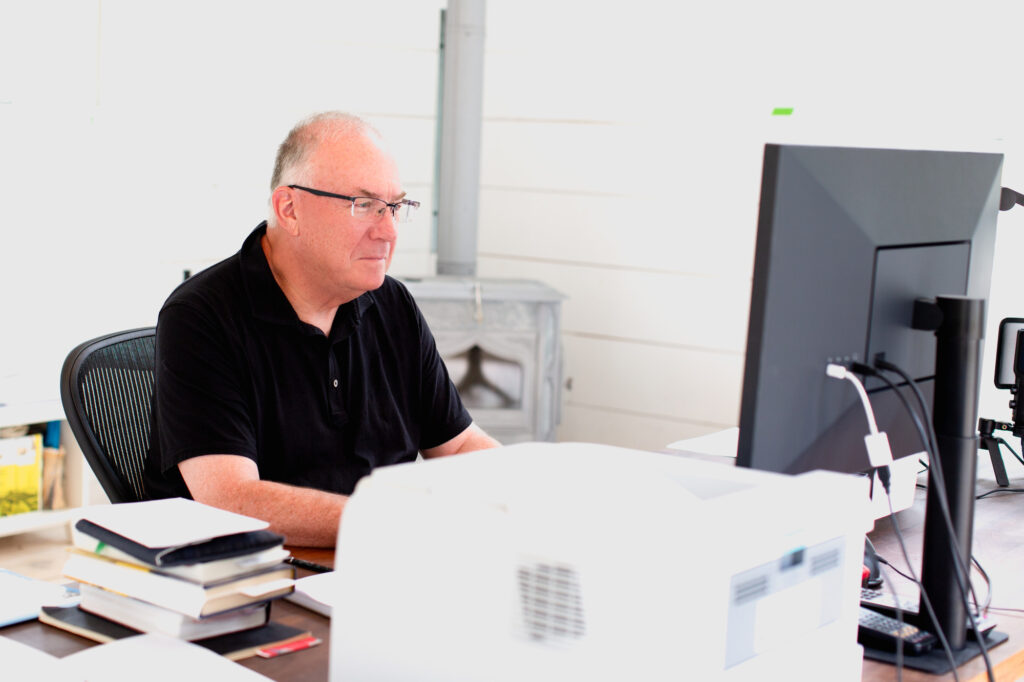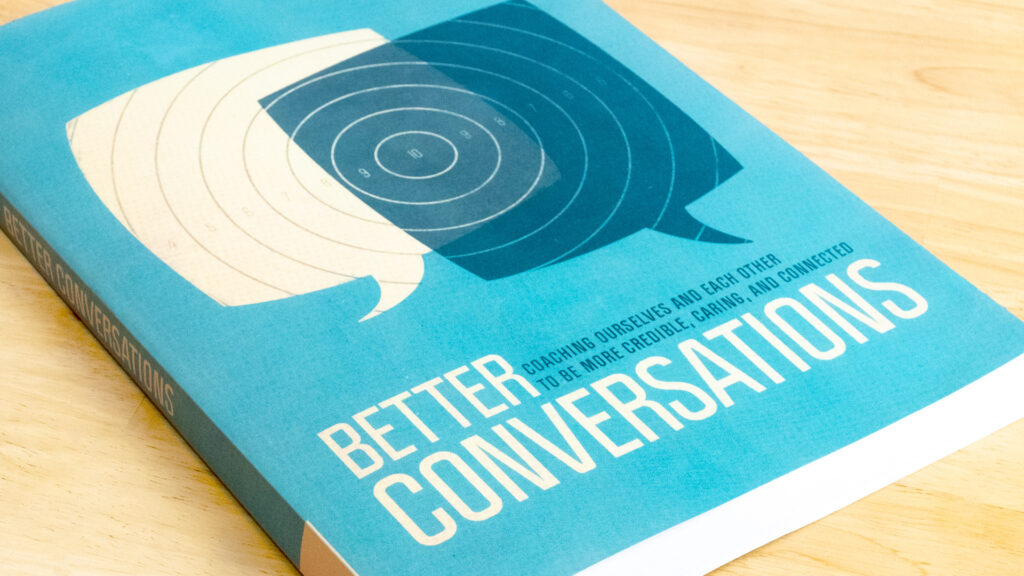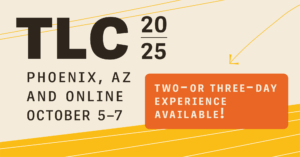Several books have been published recently describing the role habits play in personal growth. Some authors have even stated that people who want to get better should ignore goals, and focus on habits. As a result, people have been asking me, “Is it really important for coaching to focus on goals, or should coaching just focus on habits?” Here is my answer.
First off, I do agree that habits are important for building lasting change. Right now I’m working on the habit of doing push-ups every day (I’m up to 3!), and I know that if I can make strength training a habit, I’ll benefit in a big way. But after studying professional learning for more than 20 years, I believe habits are only one part of personal growth, and they may not be the most important part. I believe professional learning also frequently involves beliefs, goals, and knowledge. Let me explain.

Imagine an athlete who wants to develop as a long distance runner. Habits will probably be an important part of our runner’s growth. She will need to develop the habits of running, and doing cross training, and strength training consistently each week, perhaps at the same time each day. The more habitual those practices become, the better the runner will perform.
Goals
Goals, however, will likely also play a part. There is a mountain of research showing that goals are important for improving performance. Heidi Grant Halvorson’s short book Nine Things Successful People Do Differently offers an accessible summary of that research. Goals clarify and motivate, providing a reason for getting out of bed to run. Goals also offer a target for improvement and an objective measure of success. If our runner’s goal is to run fast enough to qualify for the Boston Marathon, then she can measure the effectiveness of the improvements she makes (such as shortening her stride, doing more or less strength training, switching to a run/walk plan) against that standard. And, I must point out, developing a habit such as running consistently each week, is still a goal.
Learning
Learning is also important for personal growth. Our runner might need to learn what kind of energy supplement to take during running, what kind of shoes work best for her, and how far she should lean forward during a run—should she run traditionally or adopt a more aggressive lean, such as that proposed by Danny Dreyer? Likely our runner would be constantly learning, maybe reading books about running, talking with other runners about what they do, maybe even getting a coach, and, most importantly testing out ideas and materials to see what moves her closer to her goal.
Beliefs
Beliefs, finally, will also be a part of our runner’s professional growth. Most likely she would find that beliefs and actions interact symbiotically. On the one hand, she needs to believe it is possible to run a marathon if she is going to put on her shoes and step outside the door to run. At the same time, running should reinforce her beliefs about her abilities, with perhaps the completion of the marathon especially solidifying her belief in herself.
“Goals provide clarity, motivation, and an objective standard for improvement.”
The same is true for teachers intent on reaching more students. Goals provide clarity, motivation, and an objective standard for improvement. Of course not all goals help. If we are given a goal by someone else and we don’t see it’s value, we aren’t likely to embrace it. Imagine a runner who was training for a marathon because they were told they had to do it. How awful would all that training feel? When it comes to teacher goals, we also have found that student-focused goals are most effective. I’ve summed up our findings about what makes effective goals in the simple acronym PEERS:
Powerful
Easy
Emotionally Compelling
Reachable
Student-Focused
Learning gives teachers knowledge and skills they can use to hit their goals. This might involve learning new teaching strategies, learning about students, or using a smart phone to record lessons and get a clearer picture of what students are doing in the classroom.
Beliefs can either open up or block teacher learning. Often beliefs change when things change in the classroom. An example using myself—I didn’t understand the power of formative assessment until I used it. But when I saw how helpful it was for students to monitor their progress, and for me to measure how well students were learning, my beliefs about assessment changed.
Finally, some of the things teachers learn may involve developing habits of practice, routines that teachers build into their ways of teaching and planning, such developing a habitual way of asking questions or reinforcing students.
Habits, goals, learning, and beliefs can be all part of professional learning. Growth isn’t just about goals any more than it is just about beliefs. What is most important for coaches to consider is that when they partner with teachers in ways that address all four elements of professional learning, there is a better chance that teachers will embrace learning. And when teachers learn, students have more opportunities to learn, too.
Share your thoughts in the comments section below.
